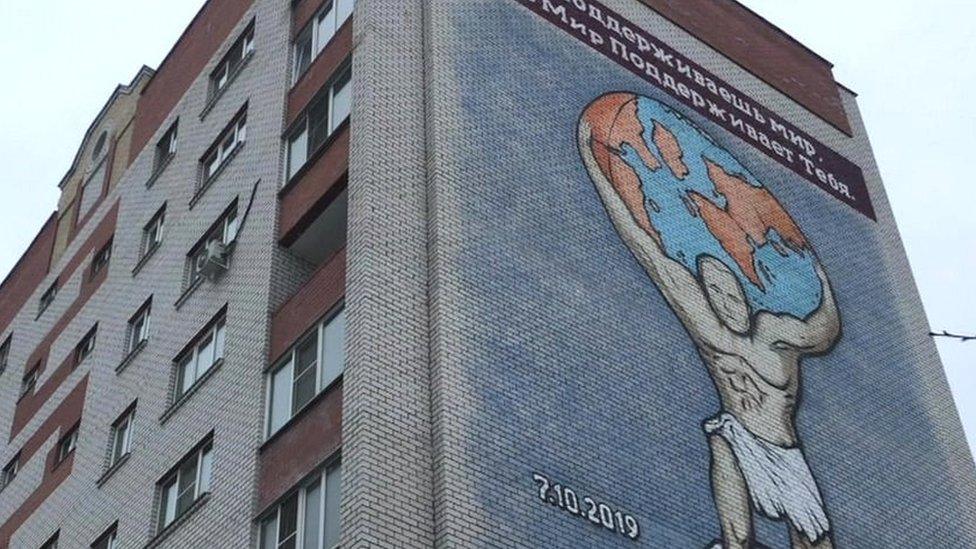Sergei Furgal: The arrest fuelling anti-Moscow anger in Russia's far east
- Published
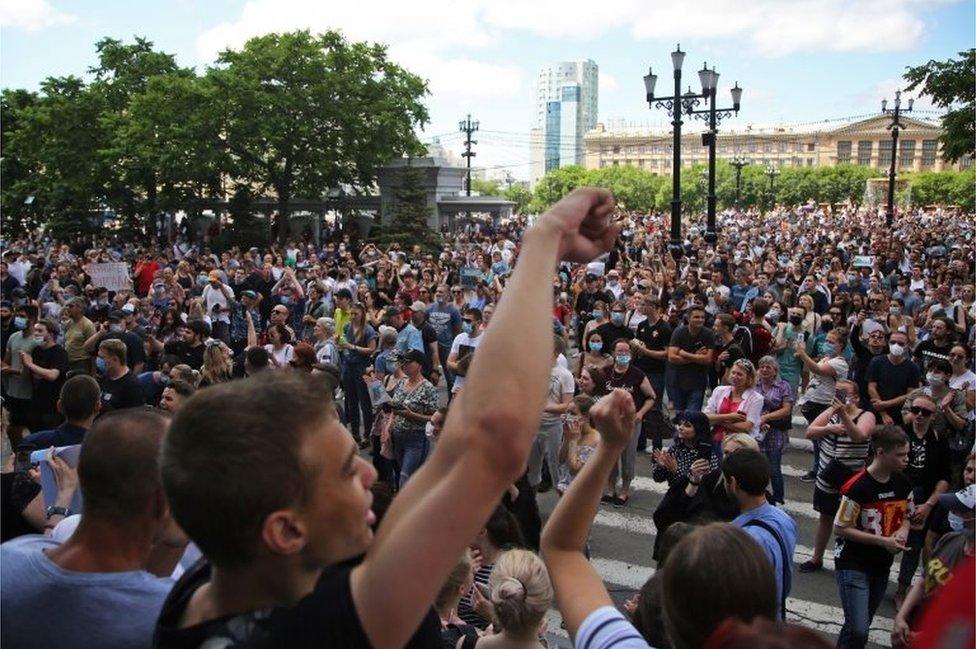
Huge protests began a week ago - and have not stopped since
In Khabarovsk it has become a nightly ritual.
A small group of protesters gathers on Lenin Square before marching off through the city centre. Along the way, more people tag along. The chanting grows louder, as does the cacophony of car horns signalling approval.
The demonstrators, who are risking arrest, are shouting slogans in support of the local governor, Sergei Furgal. Last week he was detained by officers who had flown in specially from Moscow. Mr Furgal has been charged with involvement in multiple murders dating back 15 years. He denies it. He's now behind bars in the Russian capital. That has sparked anger in Khabarovsk.
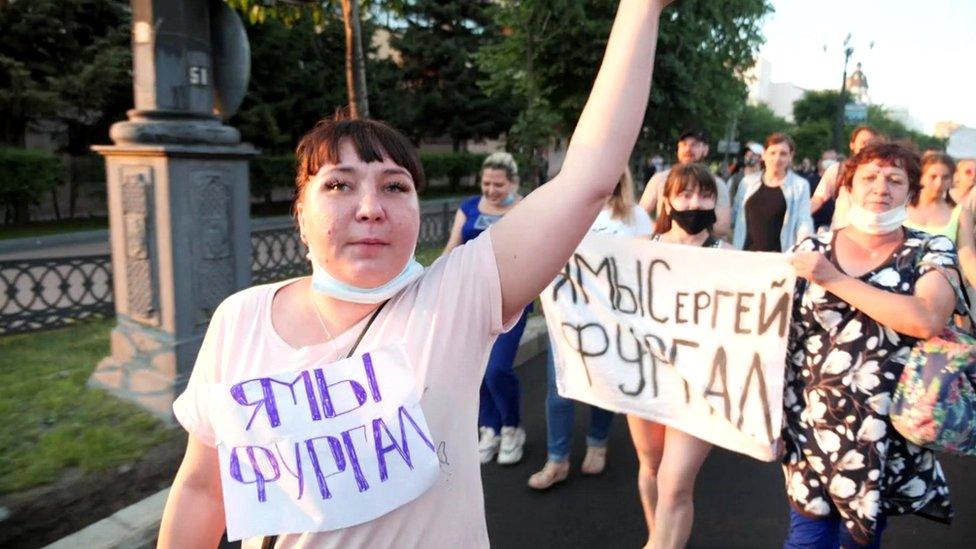
Protesters believe the move against the governor was politically motivated
"When our governor was arrested, everybody took it as their personal tragedy," one of the protesters, Alexander, tells me. "We elected this person and we feel like we've been robbed, that he was stolen from us for political reasons. People feel Moscow spat in their faces."
"But they say he's been involved in murders," I point out.
"For 15 years he was a politician," Alexander says. "In Russia there is a file on every politician. At a certain time, it can be taken out of the box and a person can be accused of anything."
In many ways, Sergei Furgal is an unlikely hero. A former businessman, he went into politics with the ultra-nationalist Liberal-Democratic Party of Russia (LDPR). Though, on paper, an opposition party, the LDPR is very much part of the Kremlin-approved political system.
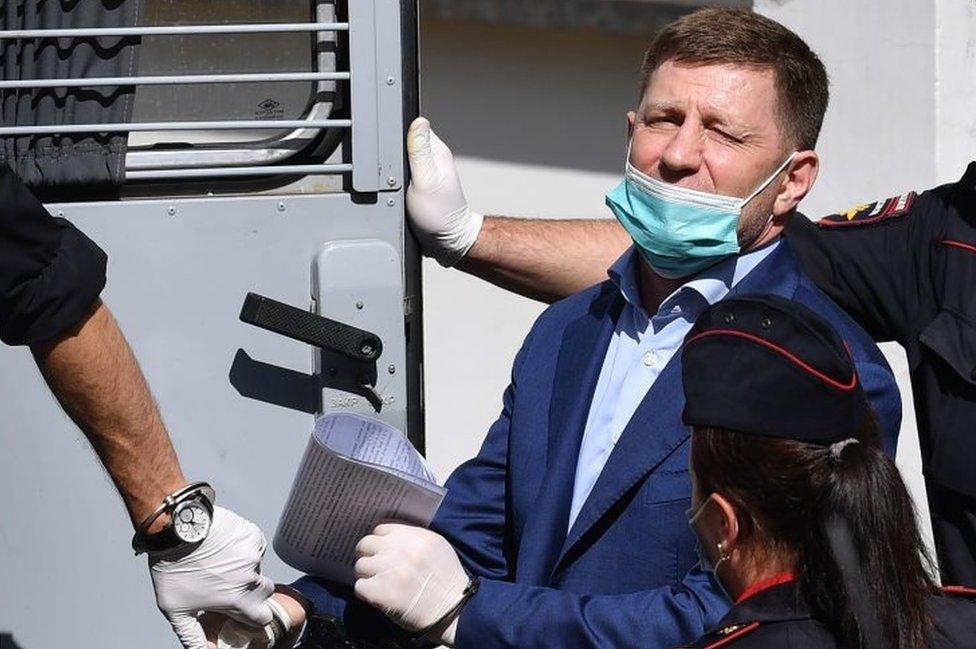
Sergei Furgal is a tough-talking politician who is very popular in the region
In 2018 Mr Furgal ran for governor of Khabarovsk region, but was widely seen as a technical candidate, with little chance - or even desire - to win. Due to a massive protest vote against Moscow, Mr Furgal trounced the Kremlin's candidate. As governor he became a charismatic, tough-talking and popular politician. Many here tell me he is more popular in the region than President Putin.
"The Kremlin are making sociological polls all the time, watching what is going on with the popularity of regional officials and of Vladimir Putin," political analyst Nikolai Petrov explains. "And in the event of regional leaders becoming more popular they are undertaking certain moves."
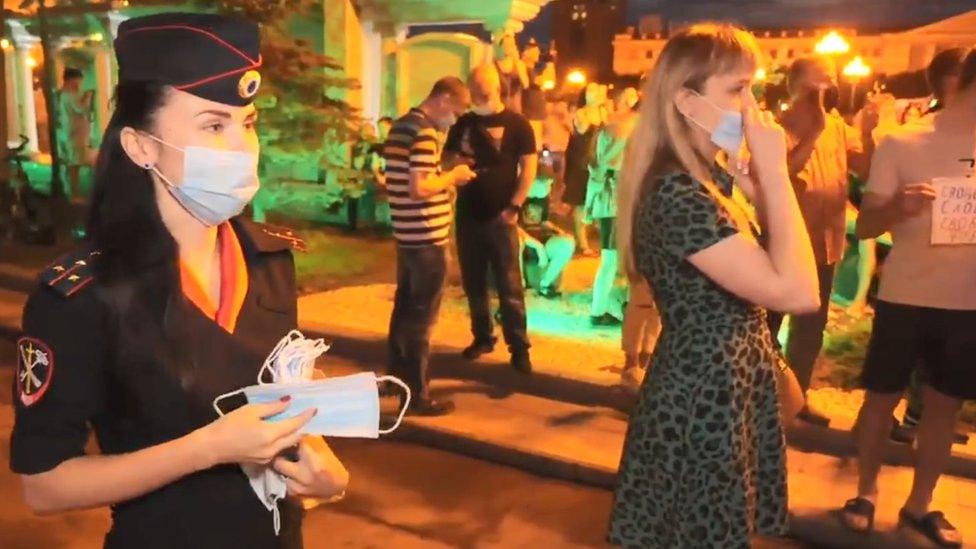
This policewoman was handing out face masks as protesters chanted "Thank you police"
The Kremlin denies that Mr Furgal's downfall is politically-motivated. When President Putin's point man in the region Yuri Trutnev visited Khabarovsk earlier this week, he told journalists: "Law enforcers would never have detained a sitting governor if they didn't have a 100% cast-iron reason for doing so."
People in Khabarovsk are not convinced. Last Saturday, the city witnessed the largest display of discontent here in modern times: up to 30,000 people took to the streets to condemn Mr Furgal's arrest and to demand their governor be returned to Khabarovsk for a fair trial on home soil.
Allow X content?
This article contains content provided by X. We ask for your permission before anything is loaded, as they may be using cookies and other technologies. You may want to read X’s cookie policy, external and privacy policy, external before accepting. To view this content choose ‘accept and continue’.

"We just try to show Moscow that he is our man, and that he has to be here," another protester, Viktoria, tells me. "Even if he committed a crime, which we don't believe, he has to be here."
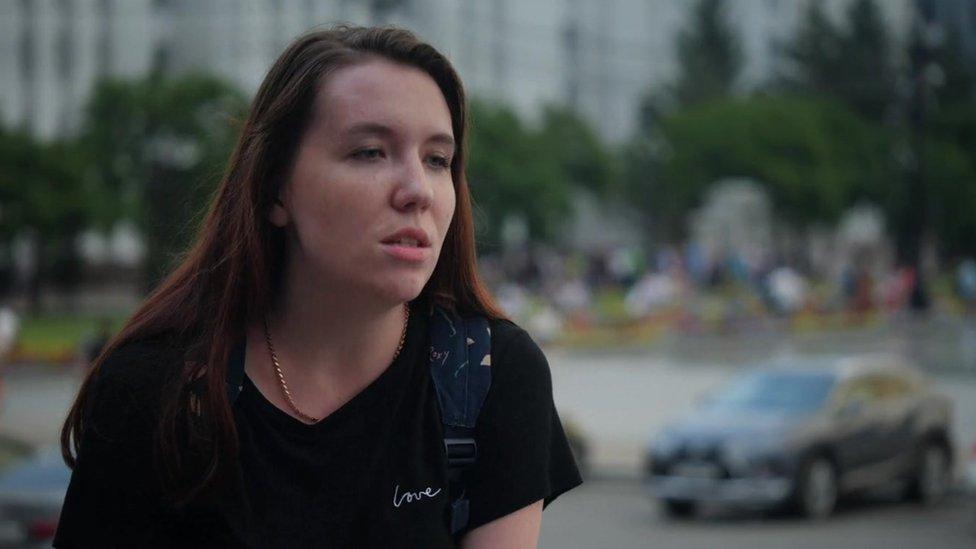
Viktoria says Mr Furgal "has to be here - even if he did it"
The protests enjoy widespread support in Khabarovsk. But I found one man who opposes them: the city's mayor, Sergei Kravchuk, from the Kremlin's party, United Russia.
"I'm against the protests because they're illegal," Mr Kravchuk tells me. "Also, today we had 85 new cases of coronavirus in the city. And where do you find coronavirus? In large crowds."
"Do you believe a trial should be held here in Khabarovsk?" I ask the mayor.
"What do you think?" Mr Kravchuk asks me back.
"I'm the journalist. You're the mayor, I'm asking you."
"But imagine you're the mayor and I'm the journalist."
"But I'm not the mayor!" I respond.
"The trial will happen in the place it should happen." Mr Kravchuk replies.


Unsanctioned protests in Russia are normally viewed by those in power here as illegal and broken up.
What is interesting about Khabarovsk is that, so far, police have been keeping their distance - a sign, perhaps, that the authorities understand the strength of feeling and wish to avoid sparking more anger.
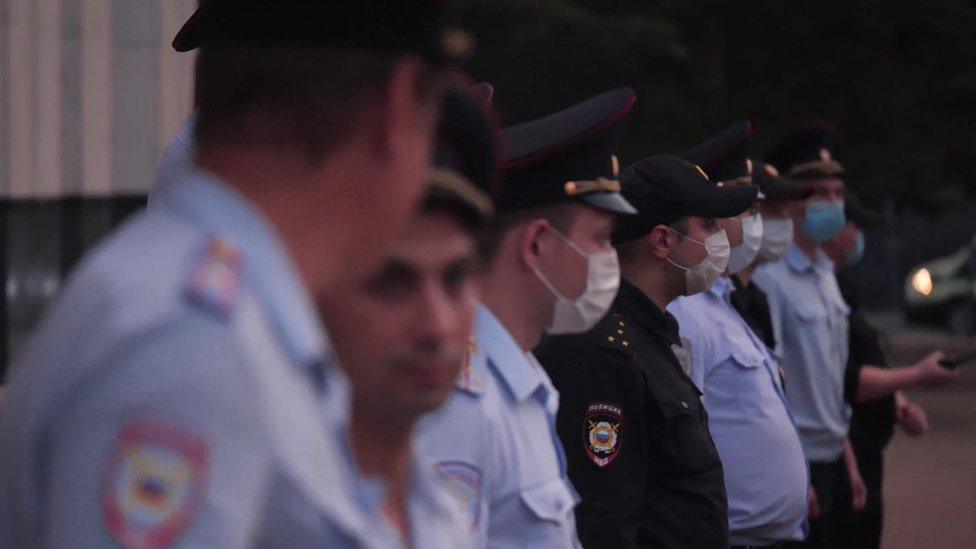
Police in Khabarovsk have so far chosen not to intervene in the protests
Away from the protests, on Khabarovsk beach, the scene is more peaceful. Families are out sunbathing and swimming in the Amur River. But when I mention the governor's arrest and the Kremlin, a big cloud comes over the conversation.
"I back the protests," says Viktor, a fisherman. "The authorities in Moscow don't give us anything. They steal it all for themselves."
"We have a saying," a woman called Natalia says. "God and Moscow are far away. Moscow won't help us, we have to help ourselves."
The arrest of their governor is fuelling resentment of their capital, seven time zones to the west: a world away from here.
- Published11 July 2020
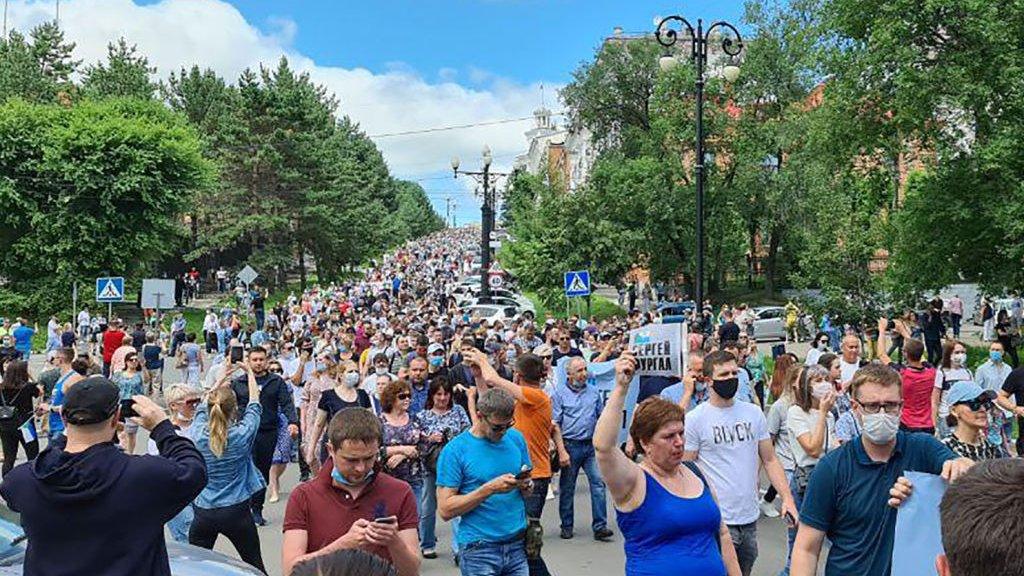
- Published1 July 2020
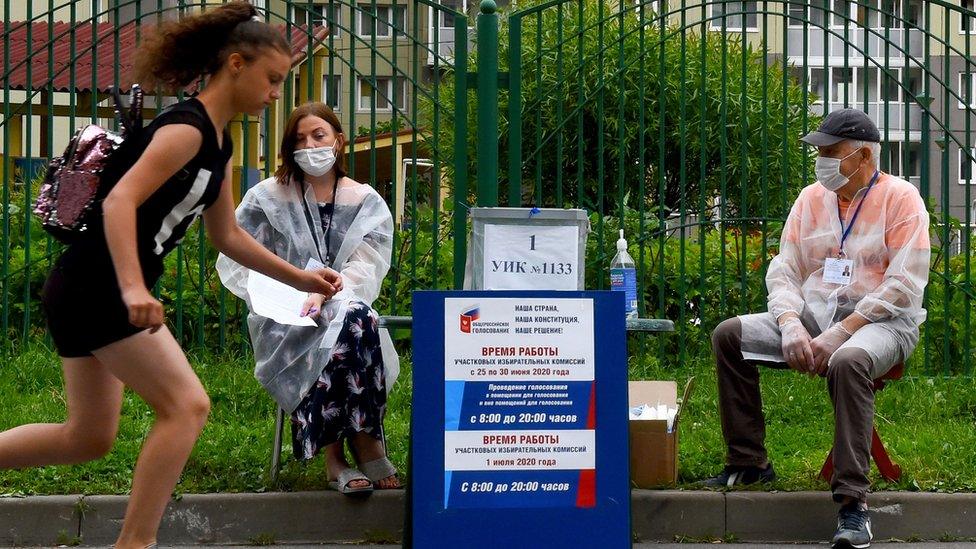
- Published15 January 2020
